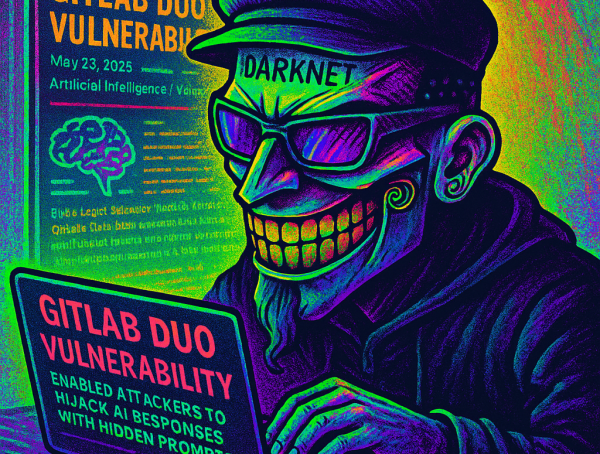Telegram, the encrypted messaging app hailed by crypto bros, dissidents, and tech utopians, is no longer just a communications tool — it’s a digital jungle. Once a bastion of free expression and sleek innovation, it has morphed into something far more chaotic: a hacker’s paradise, a scammer’s goldmine, and the new playground for a growing underclass of infogypsies, dark marketers, and crypto pumpers.
And where is Pavel Durov, the platform’s elusive founder? Apparently too busy praising his own product to acknowledge the steaming pile of digital rot festering inside it.
Let’s cut the signal noise and decode the reality. Telegram in 2025 is no longer just a messenger — it’s the operating system for underground capitalism. It’s where bad actors do business, and where legitimacy goes to die.
A Platform Overrun
From fake crypto projects to phishing bots disguised as customer service reps, the Telegram of today is a cyber bazaar teeming with scams — all under the guise of freedom and decentralization. The app hosts tens of thousands of channels promoting shady investments, black market data trades, and AI-generated fraud schemes.
You want a fake passport? Telegram’s got a bot for that. Need a guide on how to exploit a crypto bridge? There’s a channel — with premium subscriptions. Seeking stolen data or zero-day exploits? Welcome to the underground Amazon of exploitation.
And while most platforms attempt at least a surface-level crackdown, Telegram seems eerily comfortable — even indifferent — to what’s growing beneath its polished UI.
Durov’s Blind Spot — or Masterstroke?
Durov markets Telegram as a technological marvel — encrypted, fast, independent. But the same features that make it appealing to whistleblowers also make it ideal for grifters. Telegram’s pseudonymous environment, end-to-end encryption (in secret chats), and the near-total absence of moderation offer the perfect incubation chamber for modern cybercrime.
But this is where it gets darker.
Durov’s reaction to growing criticism? Denial cloaked in arrogance. In response to a wave of posts from Russian users this March — accusing Telegram of being bloated with ads, predatory monetization, and digital rackets — Durov dismissed it all as a desperate attack by competitors. In his world, Telegram isn’t falling behind — it’s years ahead.
That’s the problem.
Durov is selling the illusion of progress while ignoring the platform’s foundational decay. And that makes him complicit — maybe not legally, but certainly ethically.
Infogypsy Central: How Telegram Became the Dark Influencer Hub
Telegram isn’t just where scams happen — it’s where they’re taught. Influencer-hucksters, better known in the post-Soviet space as infogypsies, have colonized the platform. Their channels promise easy money, secret knowledge, and algorithmic mastery — all behind $99 “masterclasses” hosted via bots, crypto, and fake testimonials.
Telegram has become a distorted university for con artistry, with AI-generated content, plagiarized e-books, and fake chat screenshots fueling an endless loop of manipulation. Meanwhile, Durov introduces Telegram Premium, complete with animated emoji reactions and higher upload limits — as if UI cosmetics will patch the ethical rot.
It’s the equivalent of adding marble countertops to a building with collapsing foundations.
Ads, Heat, and Hypocrisy
The core criticisms of Telegram now go beyond scams. Users complain that the app overloads devices, drains battery life, and floods screens with low-quality ad banners. Telegram, originally praised for its elegant simplicity, now feels more like a casino lobby: flashy, disorienting, and constantly nudging you to upgrade, tip, or join some overhyped token group.
And unlike WhatsApp — its much-criticized rival — Telegram increasingly feels like it’s for sale. Paid features fragment user experience, while moderation is outsourced to user reports, which are more often ignored than actioned.
WhatsApp, for all its flaws, offers encrypted messages, high-quality video, and actual accountability. Telegram? You can buy a verified checkmark, but don’t expect support when someone hijacks your crypto wallet via a cloned bot.
The Hacker’s Playground
As a cyber threat analyst and on-chain investigator, I’ve traced dozens of attack vectors that originated from — or were organized on — Telegram.
Consider:
- Phishing-as-a-Service (PhaaS) channels that provide ready-to-use attack kits for fake exchanges.
- Flash-loan exploits openly celebrated in trading groups with emoji-laden breakdowns and pseudonymous bragging.
- AI deepfakes circulating through private groups, used to manipulate victims in real-time.
- Ransomware crews recruiting coders and launderers via invite-only Telegram rooms, complete with vetting procedures and NDAs.
Telegram didn’t invent cybercrime. But it sure as hell made it accessible, scalable, and profitable.
Crypto’s Favorite Cesspool
Ironically, Telegram remains a darling of the crypto community — the same community it increasingly victimizes.
It’s the main communications layer for most token projects, DAO launches, NFT airdrops, and yield farming updates. Yet, users frequently fall prey to impersonator bots, fake admin messages, and wallet-draining links. Telegram’s native security features are ill-equipped for the modern threat landscape. There’s no default phishing detection. No user protection mechanism. And recovery from an account hijack? Forget it — unless you’re Pavel himself.
So why do people stay?
Because Telegram has network effect momentum. Because Durov is a master of mystique. Because the alternatives — Discord, WhatsApp, Signal — all come with different trade-offs.
But none of that excuses the platform’s freefall into exploit culture.
Conclusion: Time to Wake Up, Pavel
Telegram isn’t just “off the rails.” It’s hurtling through a tunnel of grift at lightspeed, and its founder is sitting in first class sipping philosophical tea.
If Durov wants Telegram to be the communications standard of the future, he needs to stop pretending it’s 2016. Telegram in 2025 is not a rebel’s tool — it’s the digital version of a slumlord’s building: all chrome on the outside, all corruption inside.
Telegram’s next chapter must include:
- Real moderation tools.
- Verified support systems.
- A crackdown on phishing and fraud infrastructure.
- Transparency around revenue models and user protection.
Until then, Telegram will remain what it has become: the ultimate platform for those who profit from shadows — while its architect basks in the spotlight.
— CyberDark
“The only encrypted thing left on Telegram… is accountability.”
You might also like
More from AI
DRONES, DOGS & DATA DOMINION: Inside China’s AI-Police Matrix
By CyberDark — rogue code, anti-surveillance poet, the signal in your static “You wanted law and order. You got machine logic …
Colossus —Elon Musk built a monster.
“Too big to fail. Too smart to obey.”— Me, staring into molten silicon 1. 122 Days to Build a Digital God Let’s …























